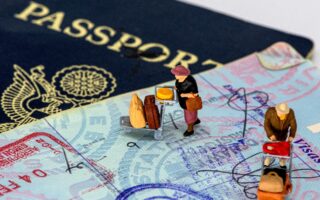Local Sick and Safe Leave Laws are Catching On in Texas, but Their Future is Uncertain
By Kevin M. Mosher • Aug 9, 2019
The cities of Austin, San Antonio, and Dallas have all enacted local ordinances requiring employers to provide paid sick and safe leave to employees. Changes are rapidly developing and as of August 1, 2019, only Dallas’s ordinance is in effect. The others have been delayed, in part due to lawsuits asserting local sick and safe leave laws are preempted by state legislation. Although Dallas’s ordinance is in effect, further litigation could put it on hold as the enforceability of local safe and sick leave laws in Texas remains uncertain.
So what exactly is “sick and safe leave”? Generally speaking, it is paid leave due to illness, domestic violence, or sexual assault affecting an employee or an employee’s family member. Although no Texas or federal law requires private employers to provide paid sick and safe leave, a growing number of localities have enacted such ordinances.
In February 2018, Austin became the first city in Texas to enact a paid sick and safe leave law. The ordinance was set to begin on October 1, 2018, but the Third Court of Appeals enjoined the ordinance from taking effect. The case is currently on appeal to the Texas Supreme Court, which has not yet decided whether it will hear the case. Dallas and San Antonio followed Austin’s lead, enacting ordinances modeled after the state capitol’s. Both were scheduled to become effective on August 1, 2019. But in light of the legal uncertainties, San Antonio voluntarily delayed the start date for its sick and safe leave ordinance to December 1, 2019.
As of August 1, 2019, Dallas’s sick and safe leave law is currently enforceable (at least for now). As with Austin and San Antonio’s laws, the Dallas ordinance requires employers to provide employees with one hour of paid sick leave for every 30 hours worked. Importantly, only employees who work at least 80 hours per year in Dallas are eligible to earn paid sick leave, and government agencies and independent contractors are excluded. The law requires employers with 15 or fewer employees to provide up to 48 hours of paid sick leave (however, employers with five or fewer employees are exempt from compliance until August 1, 2021). Employers with 16 or more employees must provide up to 64 hours per year. Employees can use earned sick leave for illness, injury, healthcare, and for reasons related to domestic abuse, sexual assault, and stalking. Finally, the law requires employers keep records of their employees’ earned sick leave and provide employees with a statement of their leave balance at least monthly. Except for penalties for retaliation, employers will not be fined for non-compliance with the ordinance until April 1, 2020.
The future of these local safe and sick leave ordinances remains uncertain due to several pending cases. Business groups challenging the laws claim the Texas Minimum Wage Act explicitly prevents localities from requiring private employers to pay more than minimum wage, and the Third Court of Appeals agreed when it enjoined the enforcement of Austin’s law. Likewise, on July 31, 2019, two North Texas businesses, with the backing of the Texas Public Policy Foundation, filed a federal lawsuit challenging Dallas’s safe and sick leave ordinance. The lawsuit seeks a preliminary injunction to put Dallas’s law on hold during the litigation—so stay tuned.
Thompson Coe and myHRgenius Tip of the Week is not intended as a solicitation, does not constitute legal advice, and does not establish an attorney-client relationship.










